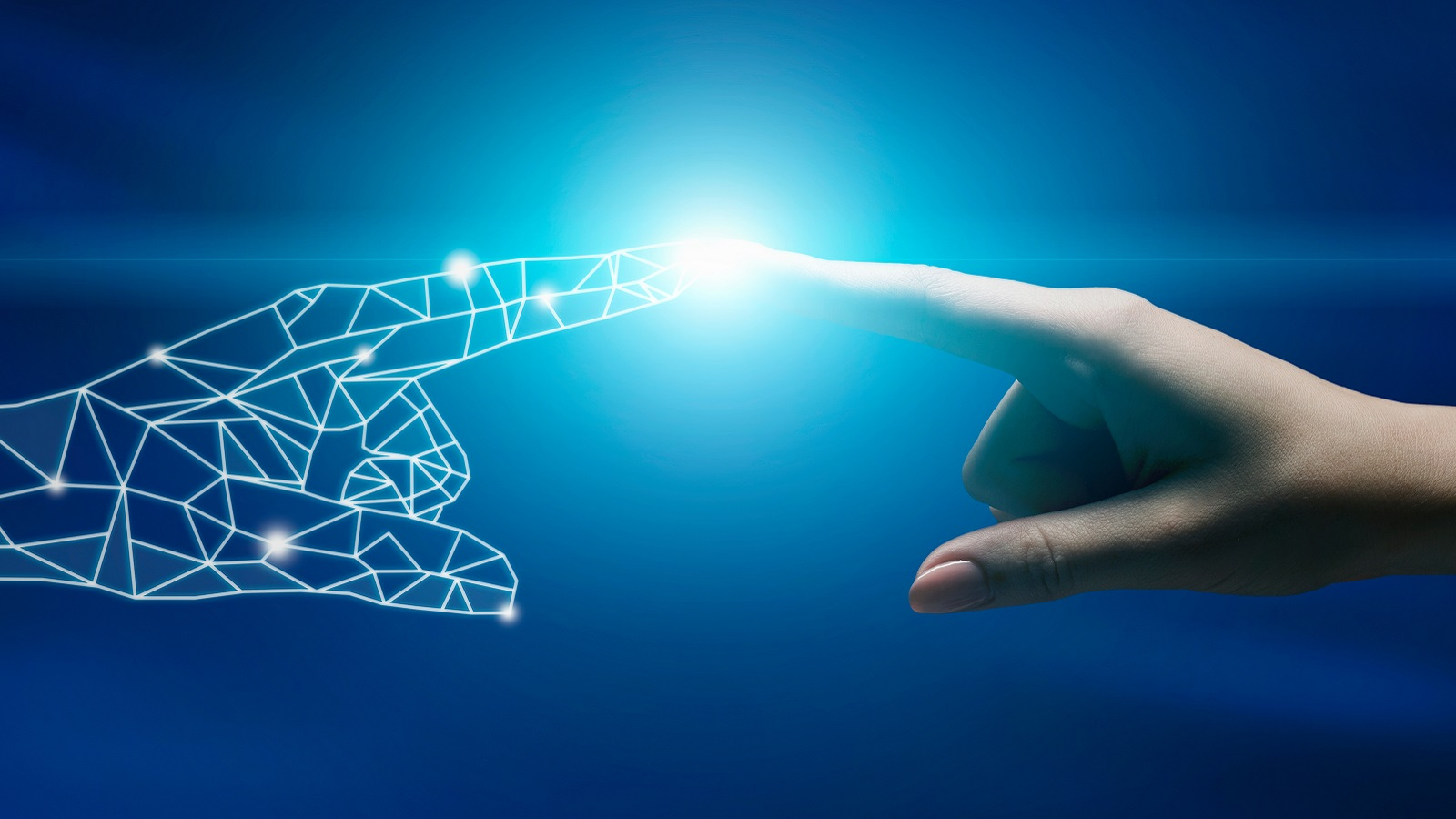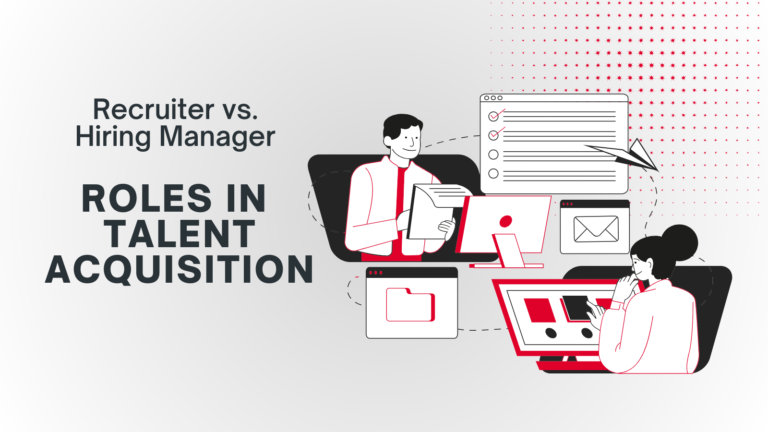The recruitment sector remained static for decades, with an outmoded hiring process. And the process involved identifying a vacancy, placing a job advert, screening applicants, conducting job interviews, and making the final offer. However, the scenario is no more the same as talent acquisition has undergone a transformation phase.
The present-day reality is that recruitment is not a one-size-fits-all concept, and multiple driving forces exist behind it. Artificial Intelligence is taking the recruitment world by storm among all the forces for good reasons. However, on the flip side, AI also has a downside that comes to the forefront when recruiters adopt the wrong ways of using it.
Our latest blog delves deep into the realm of AI in recruitment, separating fact from fiction. Join us as we explore real-world applications and the limitations that organizations must grapple with. Whether you’re an HR professional, a job seeker, or simply curious about the future of hiring, this blog is your essential guide to understanding what truly works and what falls short when AI meets recruitment.
Benefits of AI for the Recruitment Sector
According to Predictive Hire, nearly 55% of companies are investing in recruitment automation as they believe it will enhance efficiency and help them make data-driven judgments.
Let’s take a look at the pros of Artificial Intelligence in recruitment.
#1. Saves time on administrative tasks
Admin tasks are an indispensable part of the recruitment industry. Though necessary to maintain an effective workflow, they are repetitive & time-consuming. Fortunately, AI is there to automate administrative tasks and allows more time for recruiters to spend on other activities. Simply put, they can focus on vital tasks of talent acquisition.
#2. Reduces the chances of unconscious bias
Unconscious bias spares no company; even the best organisations fall flat at the hurdle. In the hiring process, unconscious bias refers to forming opinions about candidates based on first impressions. AI eliminates these biases and ensures that candidates are evaluated purely on merit. In reality, truly automated recruiting is the only way to source and evaluate candidates without bias and access a wider variety of candidates.
#3. Creates a positive candidate experience
Candidates look for positive experiences. However, some companies reject applicants without even providing them with feedback. As a result, this set of candidates is twice as likely not to apply to the same organisation. Artificial Intelligence can automate simple tasks that impact candidate experience. First, chatbots are here to answer job candidates instantly. Secondly, application tracking software sends application updates to the candidates. Thirdly, automated rejection emails let candidates know why they were unsuccessful.
#4. Demonstrates a higher level of accuracy
The need to select candidates based on their skills and place them in a position that meets their abilities. AI demonstrates a higher level of accuracy as compared to recruiters. On top of that, it increases the business’s productivity and motivates candidates to improve their skills.
RELATED READ: An Era of Smart Recruitment with Technology
The Downside of AI in Recruitment
#1. Overlooks unconventional talent
Undoubtedly, AI provides accurate results. However, this sometimes comes as a blow to the recruitment process. For instance, if a recruiter asks AI to scan applications having “one year of experience in web development”. In such a case, AI might miss candidates looking for new job opportunities but with two years of experience. As a consequence, it misses unconventional talents.
#2. Keyword-dependent
AI depends on keywords that recruiters provide to scan through the pool of candidates. This becomes an advantage for a few candidates familiar with how AI is programmed. They may include relevant keywords that can potentially lure AI and trick the system.
#3. Possesses the potential to be biased
Despite all the popular conceptions, AI still has the potential to be biased. Moreover, AI is only as intelligent as its programming. Therefore, users must be cautious about what criteria for scanning applications they feed to AI.
In 2015, Amazon detected that its AI recruitment tool showed bias against women in the hiring process. As a result, the tool did not let the applications containing the word “women” proceed further.
The instance justifies the need for users to set the proper selection criteria for AI.
#4. Impersonal
AI isn’t human and doesn’t connect to candidates and hiring managers & candidates as a human. In other words, it lacks human touch and forms the basis of ineffective communication. As a result, candidates and recruiters feel detached from the process.
Responsible Use of AI
What is the key to preventing AI from taking a gigantic form and disrupting the recruitment sector with its downside?
Well! The answer is making responsible use of AI in the hiring process. As recruiters, you must understand that AI must only be used to identify candidates who have specific skill sets while ignoring aspects such as gender, education, and names.
Related post: 10 Proven Ways for Rapid Recruitment
Final Words
The main benefits of using AI include saving recruiters’ time by automating high-volume tasks. Additionally, AI uses the quality of hire through standardised job matching. On the other hand, the significant challenges of using AI are the requirement of a lot of data, the need to learn human biases, and the skepticism of recruiters about the technology.
While Artificial Intelligence is paramount for the recruitment sector, every recruiter must keep abreast with the technology.
More importantly, it is necessary to understand that the AI trend in the recruitment sector is here to stay long. AI is a necessary evil; recruiters must adapt to the new conditions to embrace the changes.
How do we embrace AI at CGP?
Since its establishment in 2012, Cornerstone Global Partners (CGP Group) has delivered Executive Search, Staffing Solutions, Contracting, and other HR services to a wide range of industries and clients. 2018/2019 was the year of transformation for CGP when the self-developed revolutionary AI O2O recruitment platforms including https://www.cgpo2o.sg/ were launched. CGPO2O is a powerful cross-functional, cross-industry, and multi-geographic talent sourcing platform that has integrated with a professional offline team of industry recruiting experts to curate talent.
How does the O2O Platform benefit our clients and candidates?
What Makes Us Better for Clients?
- Find talent that best fits your growing company: Save time with our AI matching technology, expert offline recruiters, and fully automated client dashboard.
- Find talent at the speed you need: Take just 5 minutes to tell us what you’re looking for, and our platform will do the rest. With our curated pool of talent, let us do the work for you so save your time.
- Hire the best talent in the market across multiple industries. Gain access to 1 Mn+ pre-screened and pre-qualified candidates.
- Cost efficiency: Save up to 50% on recruitment costs when you utilize our platform
We provide a market-leading 1-year guarantee for our retained full-service clients. Your next star employee is just a click away.
What Benefits We Offer to Candidates?
With AI matching technology and expert offline recruiters with a fully automated candidate job dashboard, CGP offers our candidates one of the best O2O portals for mid to senior positions.
-
Apply only one time and get multiple offers with our AI matching technology, and fully automated candidate dashboard.
-
Receive 1-on-1 personal career counseling from our professional Talent Advisors throughout the hiring process.
-
Just upload your profile or connect your LinkedIn account and let us do the work for you.
Ready to take your career to the next level? It’s time to let your dream job find you.
FAQs
1. What is the downside of AI in recruitment?
Deficient or insufficient data may not be sufficient for a successful recruitment process. Moreover, lacking human touch might lead recruiters to miss deserving candidates. Also, AI ignores resumes that aren’t search engine optimised. It also doesn’t assess tone, personality, or soft skills. Also, AI screening doesn’t assess whether the candidate possesses decision-making skills.
2. What is the problem with using artificial intelligence to do recruiting tasks?
Undoubtedly, AI helps in automating recruiting tasks. However, incomplete or wrong information can lead to an overwhelming recruiting process. Moreover, the lack of human touch generates chances of missing out on deserving candidates.








